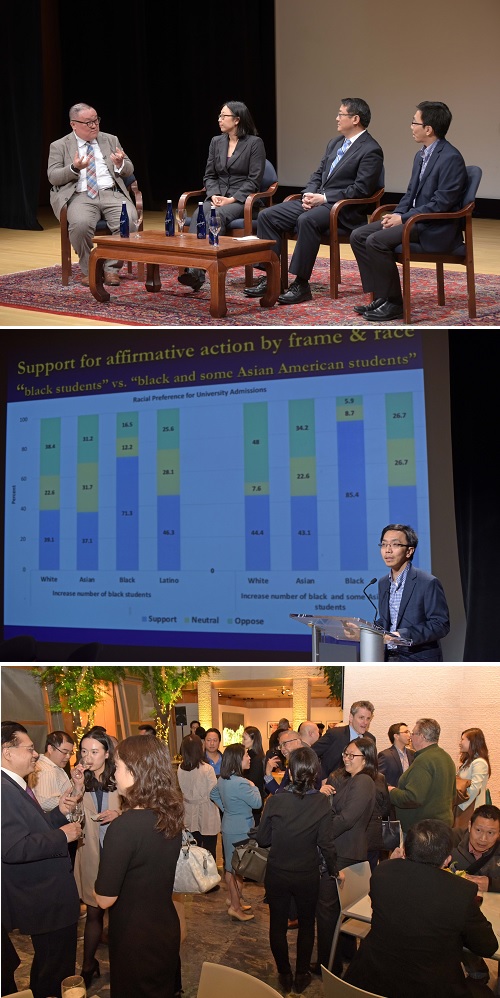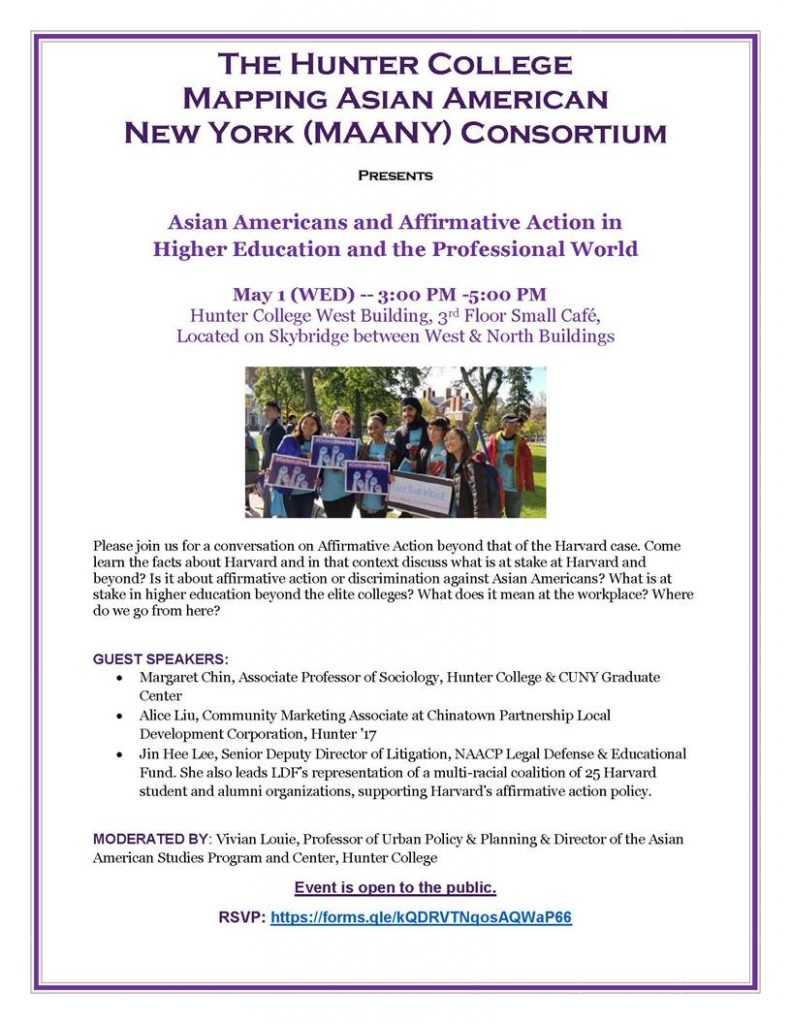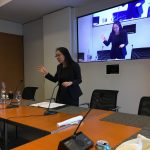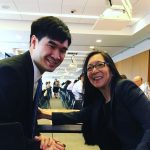On July 20th, 2023, Fordham Law School Professor Thomas H. Lee and 2nd Circuit U.S. Court of Appeals Judge Denny Chin, Co-Directors of the Center on Asian Americans and the Law (CAAL) at Fordham University, presented the Second Annual Summer Scholarship Conference. Both Professor Lee and Judge Chin are AABANY members and leaders. Professor Lee is a Co-Chair of AABANY’s Academic Committee, while Judge Chin served as AABANY’s President from 1992 to 1993 and has, with his wife Kathy Hirata Chin, led AABANY’s Trial Reenactments project.
The Center on Asian Americans and the Law is a “first-of-its-kind institution,” dedicated to civic education, scholarship and AAPI legal studies, as well as outreach and public advocacy, according to the CAAL website. Serving as a center of academic excellence, CAAL also strives to empower AAPI communities through education, research, outreach, and advocacy. By bringing together scholars, legal practitioners, students, as well as other community leaders, it creates a vibrant and diverse community that can collectively address the challenges facing AAPI individuals with a unified voice.
The event began with attendees introducing themselves over pastries and coffee, enjoying breakfast and each other’s company. Next, Professor Lee and Judge Chin led a masterclass on Asian Americans and the law, giving attendees a snapshot of AAPI legal history. This masterclass allowed attendees to sample the robust curriculum that Professor Lee and Judge Chin have brought to prestigious institutions such as Fordham, Harvard, and Yale Law. They discussed important but little-known cases related to naturalization, historical discrimination, and espionage and race and national origin, thoroughly captivating their audience.
After a lunch break, with sandwiches and light refreshments, a panel discussion featuring instructors who have taught Asian Americans and the Law was held. Instructors discussed a multitude of topics, such as integrating technology into the classroom, topical issues related to the curriculum, and ways to engage the student population with the coursework provided. Sharing their own experiences in the classroom, the panelists provided noteworthy tips and advice.
Following the panel, works in progress related to Asian Americans and the Law were presented. These works featured “Immigration and the Lived Experience” by Professor Catherine Kim, “Birthright Citizenship” by Chris Kwok, and “Disrupting Racism” by Peter Huang. Feedback was provided by Professor Elaine Chiu, Professor Thomas Lee, and Professor David Law. Their expertise offered crucial guidance to the presenters, encouraging further development of their research. The engagement between the panelists and presenters enriched the spirit of academic growth and intellectual exploration that is vital to CAAL.
Finally, an off-the-record Round Table discussion about Asian Americans and Affirmative Action was held. The insights shared during the discussion were thought-provoking and diverse. Participants engaged in candid conversations, offering varying perspectives on the complex intersection of race-conscious admissions policies and the experiences of Asian American students in higher education.
After the panels were done, the event concluded with a reception. Attendees and panelists mingled, getting to know each other while sharing their thoughts and insights from the discussions of the day.
We thank Judge Denny Chin and Professor Thomas H. Lee for leading the Summer Scholarship Conference. To learn more about the Center on Asian Americans and the Law, please click here.








